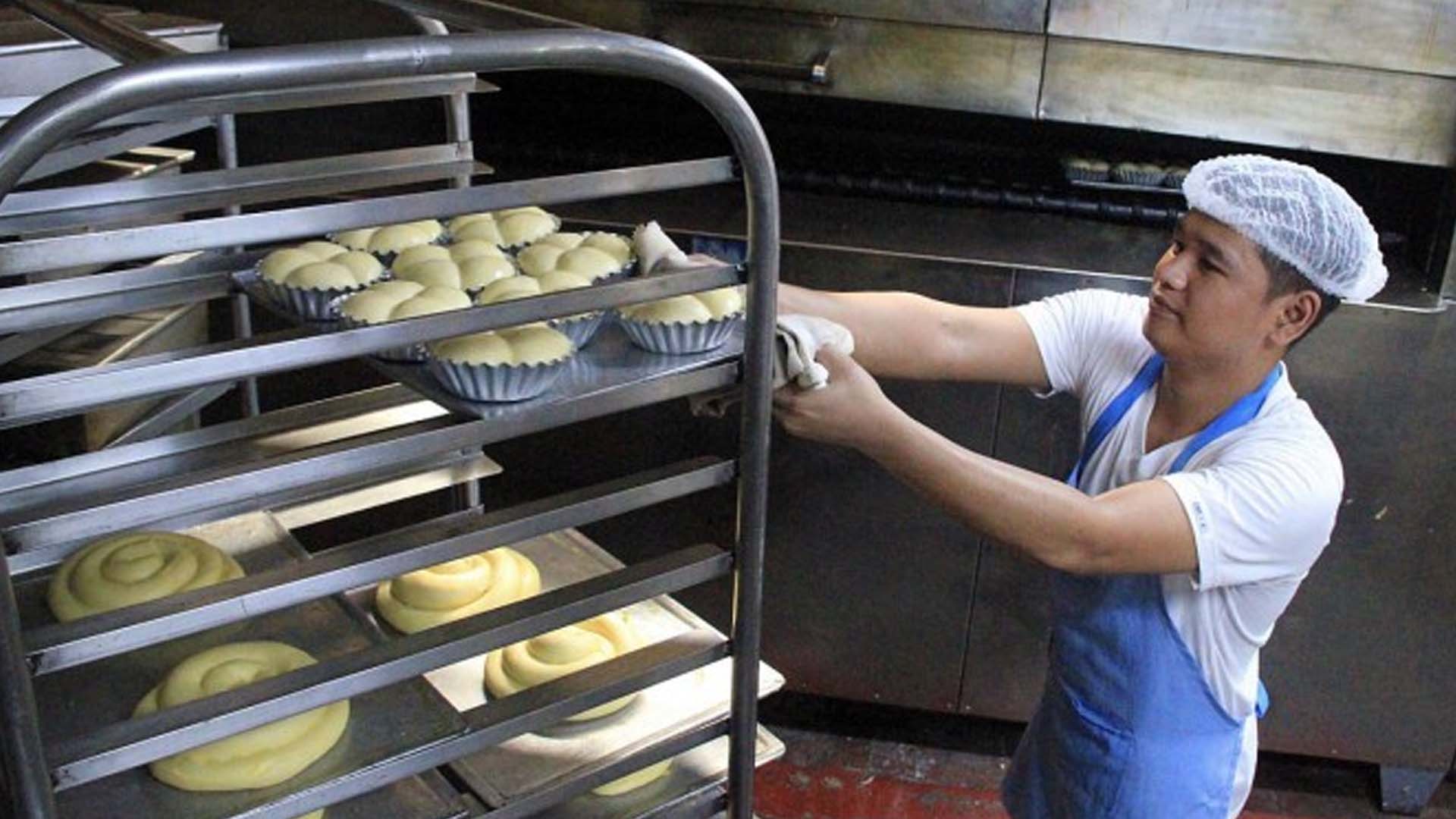Leaders of the community bakery industry have appealed for more government assistance given the country’s dwindling number of professional bakers.
In an interview on Monday, Lucito Chavez, president of the Asosasyon ng Panaderong Pilipino (APP), said their sector is currently confronted with limited financing options, few opportunities for skills upgrading, and fierce competition from foreign corporations.
He made this statement on the occasion of World Bread Day, launched by the Brussels-based International Union of Bakers and Confectioners (IUBC) to celebrate the societal contributions of bakers and their products.
The celebration coincides with the creation of the United Nations’ Food and Agriculture Organization, established in 1945 to fight hunger, with the motto “Fiat Panis” (Let there be bread).
Chavez urged the government financial institutions to offer soft loan packages specifically targeted to small bakers wishing to expand their businesses to become more competitive with large corporate bakeries.
He explained that community bakers will find it increasingly more difficult to compete with the economies of scale available to big baking companies if they continue to lack access to the capital needed to grow their operations.
APP’s president emphasized the importance of gaining access to equipment and technologies to upscale their membership’s production capabilities.
He also lamented that large corporate bakeries, some controlled by foreign multinational corporations, have been eating up the market share of community bakeries.
He said that corporate bakeries have taken some 25 percent of the domestic market share, even while corporate bakeries still control the bigger portion.
Likewise, Chavez noted that dwindling career opportunities for professional bakers due to industry disruptions, such as foreign competition and the recent pandemic, coupled with funding and training issues, has caused a “brain drain” in the local bakery industry.
He suggested the establishment of educational institutions that offer four-year college degrees in baking arts and sciences.
He pointed out that the “upskilling” Filipino bakers will remain difficult if the only schooling available to them are short certificate courses and technical training targeted to cottage industry-level operations.
“Maybe, government universities like UP Los Baños can start offering four-year courses on baking. We in the local bakery industry are willing to help out by sharing our expertise and experiences in the industry. Operating bakeries is not just about baking… they need to be taught costing, accounting and other business aspects of running a bakery or bake shop,” said Chavez.
“Let’s save jobs in the bakery industry. Don’t let them work abroad as OFWs in Israel or other parts of the world where they can caught in the crossfire. Bakers and the government should work together to develop the (bakery) industry,” he added.
The APP represents small and medium-sized community-based bakeries, which are distinguished from large industrial bakeries that often distribute their products via supermarkets.
Meanwhile, Ricardo Pinca, executive director of the Philippine Association of Flour Millers (PAFMIL), told the Philippine News Agency (PNA) that their members have produced enough flour for peak demand towards the end of the year, and into 2024.
“It has already been programmed… we have abundant supply. We have anticipated the surge in demand during the Christmas season. And unlike cooking oil and sugar, flour prices are very stable,” he said.
Pinca noted that flour prices currently range between PHP950 to PHP 1,100 per 25-kilogram bag, depending on product quality, and these prices have hardly moved all year long. (PNA)








